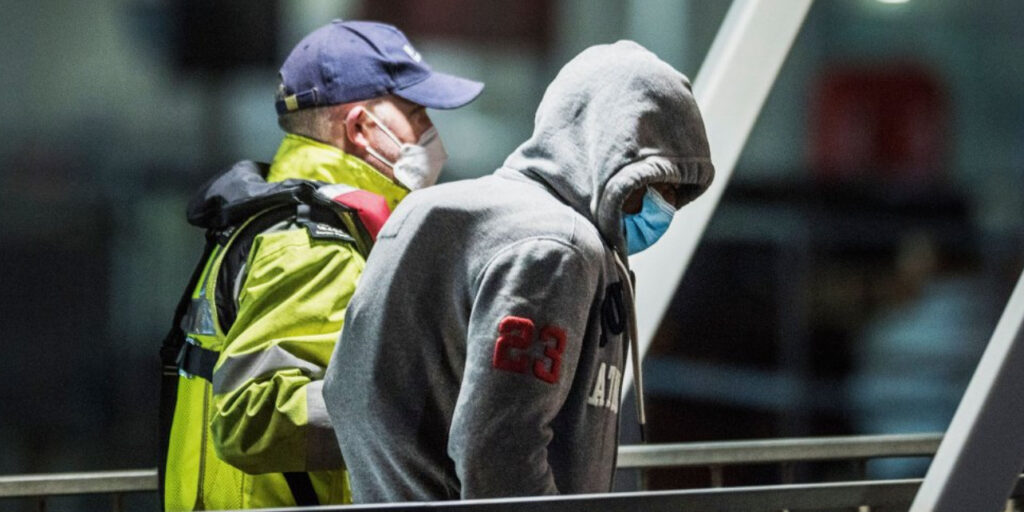The United Kingdom is set to introduce a groundbreaking sanctions regime aimed at disrupting people smuggling operations across the English Channel. Scheduled to take effect by the end of the year, the policy will target smuggling networks and Chinese manufacturers supplying boats and motors used in irregular crossings. The measures include asset freezes, entry bans, and penalties for businesses linked to these networks.
UK Cracks Down on People Smuggling Networks
Foreign Minister David Lammy emphasized the global significance of this initiative, stating, “The UK is set to be the first country in the world to develop a sanctions regime specifically targeting irregular migration and organized immigration crime.” Lammy added that many of the boats used in these operations originate from China, alongside engines and other materials.
The UK government described the sanctions as a “bold innovation” to combat irregular migration. However, the measures apply primarily within UK jurisdiction, raising questions about enforcement against overseas actors.
Strengthening Border Security
The sanctions align with other UK policies to curb irregular migration. The Border Security Command, established with a £150 million budget, collaborates with international partners like Iraq and Germany to dismantle smuggling networks. Similarly, the G7 Anti-Smuggling Action Plan has enhanced intelligence sharing and joint enforcement among member nations.
Recent reports indicate additional measures under consideration, such as travel restrictions and social media blocks on suspected traffickers, as part of the upcoming Border Security Bill.
Rights Groups Advocate for Safe Migration Routes
While the UK government intensifies its focus on enforcement, rights organizations like the Refugee Council have called for safe and legal migration routes. The Council proposed issuing 10,000 refugee visas annually, arguing that such measures, combined with border security, can reduce fatalities and discourage dangerous crossings.
In 2024, over 70 migrants died attempting to cross the English Channel, making it the deadliest year on record. The Refugee Council warned that without a new approach, deaths could increase further this year. They urged UK and French authorities to improve search and rescue operations and document fatalities more effectively.
Asylum Backlogs and Political Pressure
The Labor government, elected in July, faces mounting pressure to address irregular Channel crossings. Data from the Interior Ministry shows a 25% increase in crossings, with 36,816 migrants entering the UK in 2024 compared to 29,437 in 2023. Afghan nationals represented the largest group of arrivals last year.
At the same time, asylum backlogs have reached record levels, with over 133,000 individuals awaiting decisions on their claims. The UK spent £5.4 billion last year managing the asylum system. The government has responded by fast-tracking deportations of individuals without legal status, including the recent repatriation of 44 Nigerians and Ghanaians.
In a statement, the government reiterated its commitment to restoring order to the asylum system, clearing the backlog, and disrupting smuggling networks to reduce Channel crossings.


